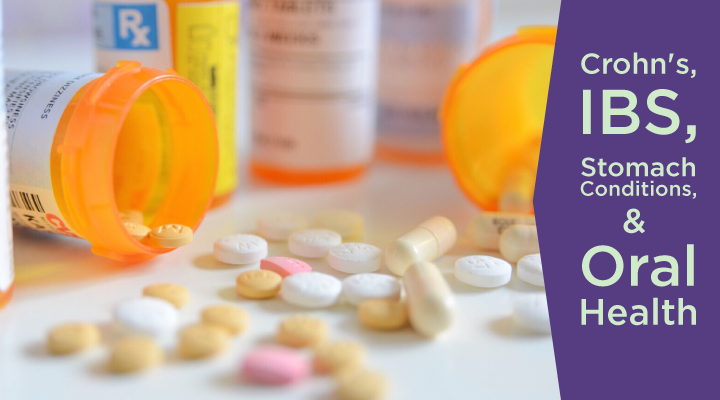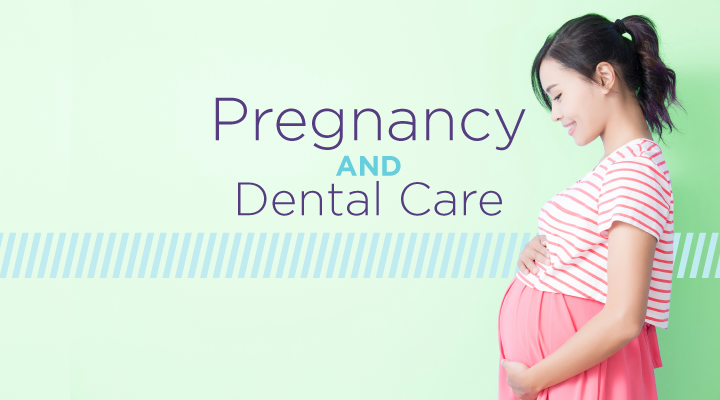
We don’t often think of our mouth as part of our digestive track – but it is! How well we digest our food impacts our mouth, smile, and oral health. That’s why diseases in the digestive tract and other stomach problems can lead to poor oral health. Some signs and symptoms that occur in the mouth point to an exact stomach condition; others tell doctors that an inflammatory disease is present, but not exactly what that disease is. Over three million adults in the US have a form of inflammatory bowel disease (IBD). The two main forms of IBD are Crohn’s disease and ulcerative colitis (UC), which both impact the mouth. This makes dentist visits that much more important for individuals with these conditions.
Women are slightly more prone to IBD. While the condition can occur at any age, diagnosis often occurs after the age of 15. People with these diseases report:
- poorer quality of life
- long periods of illness
- hospitalizations
- surgical procedures
Our oral and overall health are very interconnected, and these diseases are no exception. Crohn’s disease and ulcerative colitis cause similar changes in the mouth. Small, white tags called “mucosal tags” or “epithelial tags” are one oral sign of disease. They are not connected with one specific disease or diagnosis and arise from the internal inflammation of the digestive tract.
When surveyed against a control group, one study of people with an inflammatory bowel disease found that they self-reported “significantly more mouth-related problems.” They said they experienced more cavities and more bleeding of the gums than the control group.
Crohn’s Disease and The Health of Your Mouth
Crohn’s disease is the second-most common IBD. A dentist can be the first to diagnose Crohn’s disease by signs in the mouth if the patient has not seen a physician. The parts of the mouth most affected by oral Crohn’s disease include the lips, inside of the cheek, tissue behind the molars, gums, and even the tissues in our ears. Because this stomach condition can cause oral lesions, it’s another important reason to visit your dentist regularly. Signs and symptoms of the disease in the mouth are discovered first about 7% of the time.
So, how does this translate to dental care? One study of dental patients with Crohn’s disease saw that they have significantly more dental procedures than an individual without an IBD. Adults with Crohn’s disease were 65% more likely to have removable dentures, 52% more likely to have fillings in front teeth, and 46% more likely to have tooth-saving procedures done.
Ulcerative Colitis and The Health of Your Mouth
There are many similarities in the mouth when we look at patients with Crohn’s disease and those with UC. But UC differs in a few ways. It’s the most common IBD. Additionally, it has an oral “marker” in the mouth that signals to dentists and doctors what the patient may have. There is a very strong connection between an oral condition called “Pyostomatitis Vegetans” (PV) and UC.
To put it simply, PV is when the tissue inside the mouth, the skin on the lips, or the corners of the mouth become reddened, swollen, and have lacerations. Unlike the majority of the oral wounds, PV is a specific marker pointing to UC. Click here to see what PV looks like in the mouth.
What to Do?
Keeping up with dental appointments allows us to maintain our oral health. It’s even more important when we have a disease like IBD that compromises the health of our mouth and body. Tell your dentist about all the medications you’re taking and any diagnoses from your physician. You dentist may want to see you more often to keep an eye out for changes in your oral health.
Some kinds of mouthwash and rinses offer only temporary relief for mouth sores, so speak with your doctor and physician at the first signs of change in your mouth. It’s necessary to treat the underlying condition that is causing your oral symptoms, and not just keep those symptoms at bay.


